![]()
![]()
![]()

Elisa Bertino (IEEE/ACM/AAAS Fellow)
Samuel D. Conte Professor, Purdue University, USA
Keynote Talk Title: Security of 4G and 5G cellular networks
Time: 8:30-9:30, Wednesday, February 19, 2020
Abstract:
As the world moves to 4G and 5G cellular networks, security and privacy are paramount importance and new tools are needed to ensure them. For example, LTEInspector is a model-based testing approach that combines a symbolic model checker and a cryptographic protocol verifier in the symbolic attacker model. Using it, researchers have uncovered 10 new attacks along with 9 prior attacks, categorized into three abstract classes (i.e., security, user privacy, and disruption of service), in three procedures of 4G LTE. Notable among the findings is the authentication relay attack that enables an adversary to spoof the location of a legitimate user to the core network without possessing appropriate credentials. To ensure that the exposed attacks pose real threats and are indeed realizable in practice, 8 of the 10 new attacks have been validated and their accompanying adversarial assumptions have been put through a real testbed. On-going work in addressing some of those vulnerabilities points the way toward an agenda of further research.
Biography:
Elisa Bertino is professor of Computer Science at Purdue University. She serves as Director of the Purdue Cyberspace Security Lab (Cyber2Slab). Prior to joining Purdue, she was a professor and department head at the Department of Computer Science and Communication of the University of Milan. She has been a visiting researcher at the IBM Research Laboratory in San Jose (now Almaden), at the Microelectronics and Computer Technology Corporation, at Rutgers University, at Telcordia Technologies. She has also held visiting professor positions at the Singapore National University and the Singapore Management University. Her main research interests include security, privacy, database systems, distributed systems, and sensor networks. Her recent research focuses on cybersecurity and privacy of cellular networks and IoT systems, and on edge analytics for cybersecurity. Elisa Bertino is a Fellow member of IEEE, ACM, and AAAS. She received the 2002 IEEE Computer Society Technical Achievement Award for “For outstanding contributions to database systems and database security and advanced data management systems”, the 2005 IEEE Computer Society Tsutomu Kanai Award for “Pioneering and innovative research contributions to secure distributed systems”, and the 2019-2020 ACM Athena Lecturer Award.
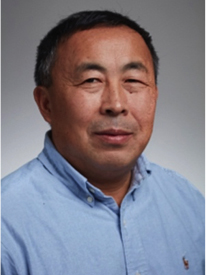
Xuemin (Sherman) Shen (IEEE/CAE/RSC Fellow)
University Professor, University of Waterloo, Canada
Keynote Talk Title: Reinforcement Learning for Resource Management in Space-Air-Ground (SAG) Integrated Vehicular Networks
Time: 8:30-9:30, Thursday, February 20, 2020
Abstract:
Space-Air-Ground integrated Vehicular Network (SAGVN) is a prominent paradigm to provide an extremely versatile vehicular network that can simultaneously guarantee ultra-reliability low-latency communications (URLLC) and deliver high-bandwidth traffic anywhere, any environment condition, and any event at anytime. However, it is challenging to manage and allocate the terrestrial network, aerial network (UAV), and space (satellite) resources simultaneously and efficiently, as they have heterogeneous access features in terms of delay, throughput, and coverage range. In addition, high vehicle mobility and real-time decision requirement further render the problem intractable. In this talk, we advocate the usage of reinforcement learning for resource management in SAGVN, which can enable model-free and fast decision makings for adaptive access control, on-demand UAV deployment, and UAV trajectory design. We will also show the detail development of our SAG simulator and some demos.
Biography:
Xuemin (Sherman) Shen is a University Professor, and Associate Chair for Graduate Study, Department of Electrical and Computer Engineering, University of Waterloo, Canada. Dr. Shen's research focuses on wireless resource management, wireless network security, smart grid and vehicular ad hoc and sensor networks. He is the Editor-in-Chief of IEEE IoT J. He serves as the General Chair for Mobihoc'15, the Technical Program Committee Chair for IEEE Globecom'16, IEEE Infocom'14, IEEE VTC'10, the Symposia Chair for IEEE ICC'10, the Technical Program Committee Chair for IEEE Globecom'07, the Chair for IEEE Communications Society Technical Committee on Wireless Communications. Dr. Shen is an elected IEEE ComSoc Vice President - Publications, the chair of IEEE ComSoc Distinguish Lecturer selection committee, and a member of IEEE ComSoc Fellow evaluation committee. Dr. Shen received the Excellent Graduate Supervision Award in 2006, and the Premier's Research Excellence Award (PREA) in 2003 from the Province of Ontario, Canada. Dr. Shen is a registered Professional Engineer of Ontario, Canada, an IEEE Fellow, an Engineering Institute of Canada Fellow, a Canadian Academy of Engineering Fellow, a Royal Society of Canada Fellow, and a Distinguished Lecturer of IEEE Vehicular Technology Society and Communications Society.

Claire Tomlin (NAE and AAAS member, MacArthur Foundation/IEEE Fellow)
Desoer Professor, UC Berkeley, USA.
Keynote Talk Title: Safe Learning in Robotics
Time: 10:00-11:00, Monday, February 18, 2019
Abstract:
A great deal of research in recent years has focused on robot learning. In many applications, guarantees that specifications are satisfied throughout the learning process are paramount. For the safety specification, we present a controller synthesis technique based on the computation of reachable sets, using optimal control and game theory. In the first part of the talk, we will review these methods and their application to collision avoidance and avionics design in air traffic management systems, and networks of unmanned aerial vehicles. In the second part, we will present a toolbox of methods combining reachability with data-driven techniques inspired by machine learning, to enable performance improvement while maintaining safety. We will illustrate these “safe learning” methods on robotic platforms at Berkeley, including demonstrations of motion planning around people, and navigating in a priori unknown environments.
Biography:
Claire Tomlin is the Charles A. Desoer Professor of Engineering in EECS at Berkeley. She was an Assistant, Associate, and Full Professor in Aeronautics and Astronautics at Stanford from 1998 to 2007, and in 2005 joined Berkeley. Claire works in the area of control theory and hybrid systems, with applications to air traffic management, UAV systems, energy, robotics, and systems biology. She is a MacArthur Foundation Fellow (2006), an IEEE Fellow (2010), in 2017 she was awarded the IEEE Transportation Technologies Award, and in 2019 was elected to the National Academy of Engineering and the American Academy of Arts and Sciences.
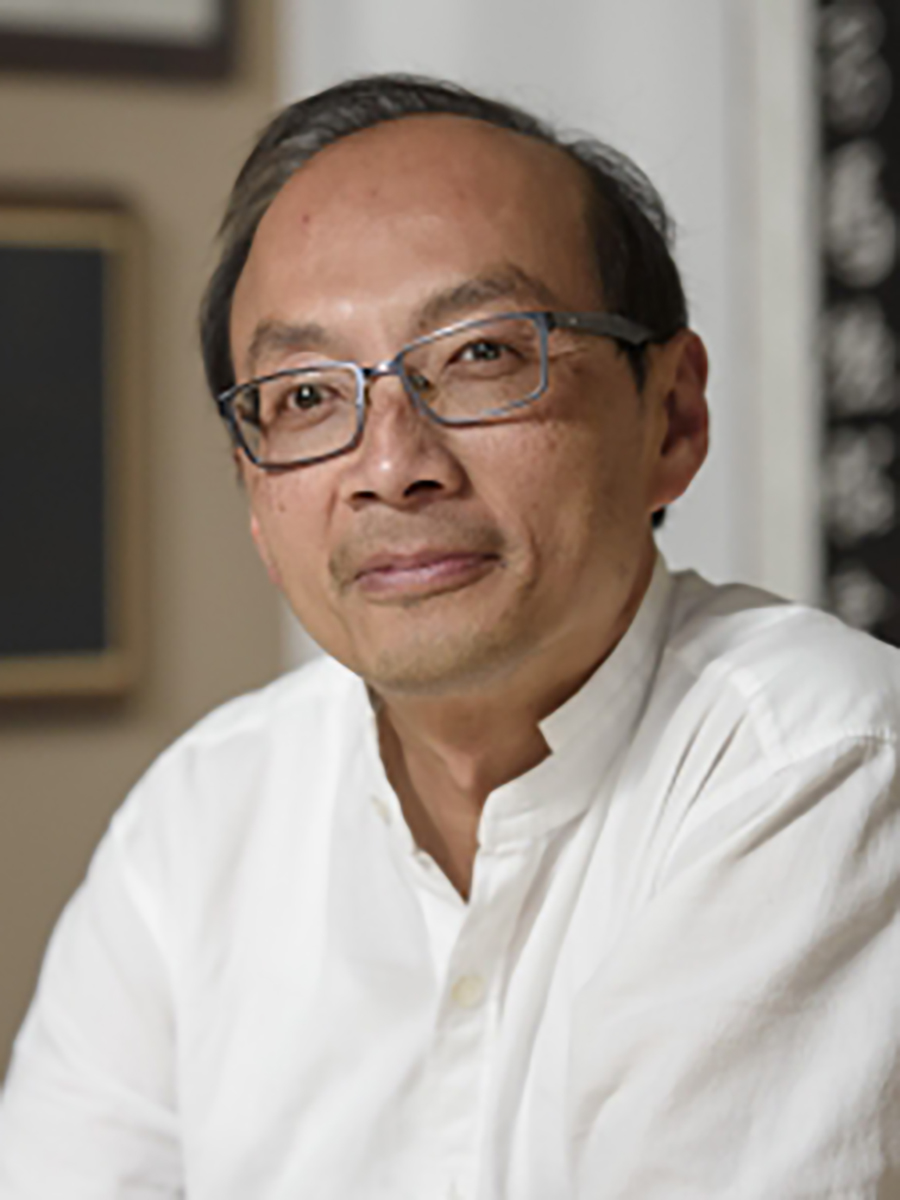
David Tse (NAE member, IEEE Fellow, Shannon Award Winner)
Thomas Kailath and Guanghan Xu Professor, Stanford University, USA.
Keynote Talk Title: Solving the Blockchain Trilemma
Time: 8:30-9:30, Monday, February 17, 2020
Abstract:
The blockchain trilemma is a conjecture which states that it is impossible to build a fully decentralized blockchain system whose security and transaction throughput both scale linearly with the number of nodes in the network. We provide a resolution to the conjecture.
Biography:
David Tse received the BASc degree in systems design engineering from University of Waterloo in 1989, and the MS and PhD degrees in electrical engineering from Massachusetts Institute of Technology in 1991 and 1994 respectively. From 1994 to 1995, he was a postdoctoral member of technical staff at A.T. & T. Bell Laboratories. From 1995 to 2014, he was on the faculty of the University of California at Berkeley. He is currently the Thomas Kailath and Guanghan Xu Professor at Stanford University.
David Tse was elected member of the U.S. National Academy of Engineering in 2018. He was the recipient of the IEEE Claude E. Shannon Award in 2017 and the IEEE Richard W. Hamming Medal in 2019. Previously, he received a NSF CAREER award in 1998, the Erlang Prize from the INFORMS Applied Probability Society in 2000 and a Gilbreth Lectureship from the National Academy of Engineering in 2012. He received multiple best paper awards, including the Information Theory Society Paper Award in 2003, the IEEE Communications Society and Information Theory Society Joint Paper Awards in 2000, 2013 and 2015, the Signal Processing Society Best Paper Award in 2012 and the IEEE Communications Society Stephen O. Rice Prize in 2013. For his contributions to education, he received the Outstanding Teaching Award from the Department of Electrical Engineering and Computer Sciences at U.C. Berkeley in 2008 and the Frederick Emmons Terman Award from the American Society for Engineering Education in 2009. He is a coauthor, with Pramod Viswanath, of the text Fundamentals of Wireless Communication, which has been used in over 60 institutions around the world. He is the inventor of the proportional-fair scheduling algorithm used in all third and fourth-generation cellular systems, serving 2.7 billion subscribers around the world.
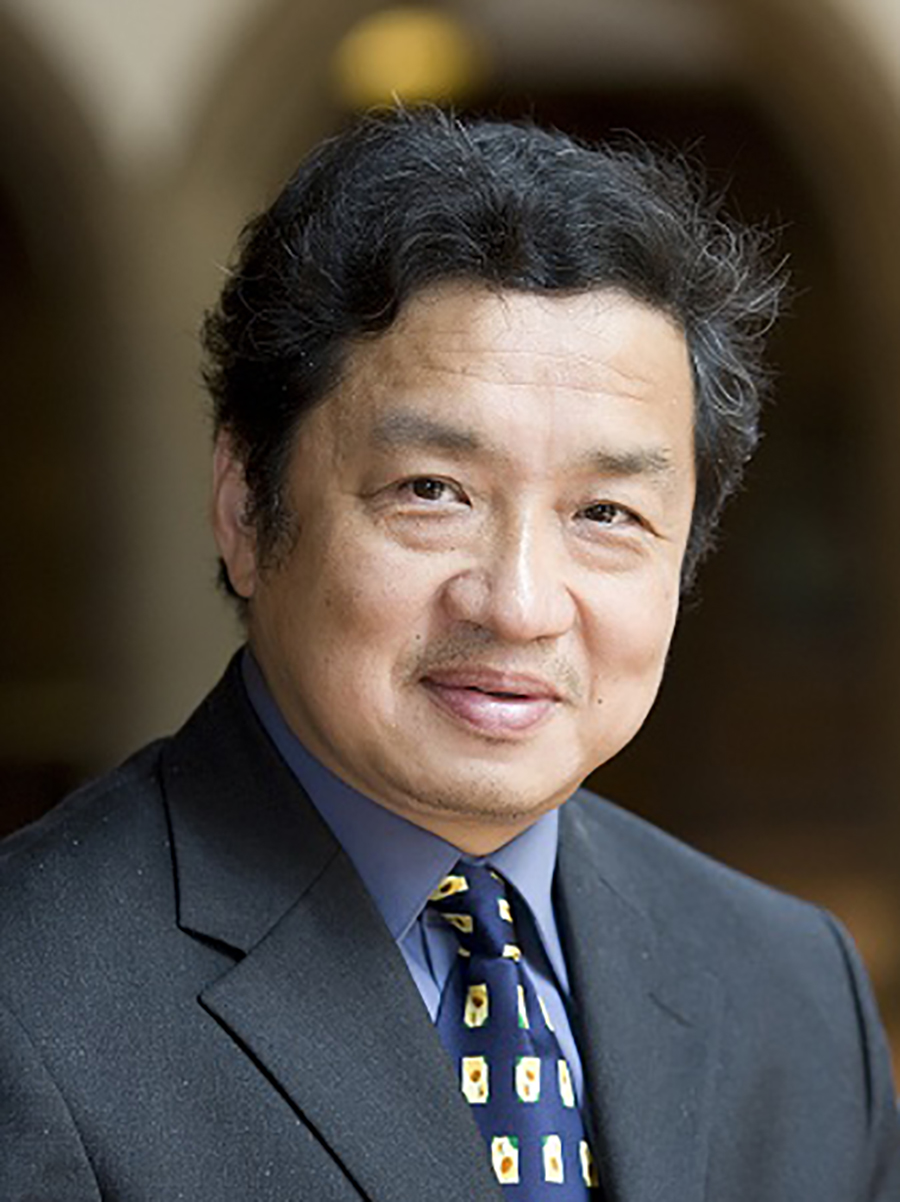
Jie Wu (IEEE/AAAS Fellow)
Laura H. Carnell Professor, Temple University
Keynote Talk Title: Challenges and Opportunities in Algorithmic Solutions for Re-Balancing in Bike Sharing Systems
Time: 8:30-9:30, Tuesday, February 18, 2020
Abstract:
In recent years, the booming of the bike sharing system (BSS) has played an important role in offering a convenient means of public transport. The BSS is also viewed as a solution to the first/last mile connection issue in urban cities. The BSS can be classified into dock and dock-less. However, due to imbalance in bike usage over spatial and temporal domains, stations in the BSS may exhibit overflow (full stations) or underflow (empty stations). In this talk, we will take a holistic view of the BSS design by examining the following four components: (1) system design, (2) system prediction, (3) system balancing, and (4) trip advisor. We will focus on system balancing, addressing the issue of overflow/underflow. We will look at two main methods of bike rebalancing: with trucks and with workers. Discussion on the other three components that are related to system balancing will also be given. Specifically, we will study various algorithmic solutions with the availability of data in spacial and temporal domains. Finally, we will discuss several key challenges and opportunities of the BSS design and applications as well as the future of dock and dock-less BSS in a bigger setting of the transportation system.
Biography:
Jie Wu is the Director of the Center for Networked Computing and Laura H. Carnell professor at Temple University. He also serves as the Director of International Affairs at College of Science and Technology. He served as Chair of Department of Computer and Information Sciences from the summer of 2009 to the summer of 2016 and Associate Vice Provost for International Affairs from the fall of 2015 to the summer of 2017. Prior to joining Temple University, he was a program director at the National Science Foundation and was a distinguished professor at Florida Atlantic University. His current research interests include mobile computing and wireless networks, routing protocols, cloud and green computing, network trust and security, and social network applications. Dr. Wu regularly publishes in scholarly journals, conference proceedings, and books. He serves on several editorial boards, including IEEE Transactions on Mobile Computing, IEEE Transactions on Service Computing, Journal of Parallel and Distributed Computing, and Journal of Computer Science and Technology. Dr. Wu was general co-chair for IEEE MASS 2006, IEEE IPDPS 2008, IEEE ICDCS 2013, ACM MobiHoc 2014, ICPP 2016, and IEEE CNS 2016, as well as program cochair for IEEE INFOCOM 2011 and CCF CNCC 2013. He was an IEEE Computer Society Distinguished Visitor, ACM Distinguished Speaker, and chair for the IEEE Technical Committee on Distributed Processing (TCDP). Dr. Wu is a Fellow of the AAAS and a Fellow of the IEEE. He is the recipient of the 2011 China Computer Federation (CCF) Overseas Outstanding Achievement Award.
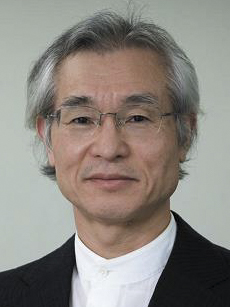
Fumiyuki Adachi (IEEE Life Fellow, IEICE Fellow)
Specially Appointed Professor for Research, Tohoku University, Japan
Plenary Title: Ultra-dense Radio Access Network for 5G Advanced Systems
Time: 13:30-14:30, Tuesday, February 18, 2020
Abstract:
Restructuring the radio access network (RAN) is inevitable to support a huge number of users or devices requiring high data rate, high reliability, and low latency. One promising architecture is ultra-dense RAN consisting of large-scale distributed multiple-input multiple-output (MIMO) and mobile edge computing (MEC). The biggest challenge is the prohibitively high computational complexity required to handle large numbers of distributed antennas (DAs) and user equipments (UEs) for large-scale distributed MIMO cooperative transmission and reception. This computational complexity problem can be alleviated by introducing location-based user clustering to form a number of user-centric virtual cells (VCs). However, since the same radio resource needs to be densely reused to improve the spectrum efficiency, two types of interference arise: inter-VC interference (IVCI) in each RAN area and inter-cell interference (ICI) from neighboring eRAN areas. In this talk, we will present promising approaches for mitigating the interference problems. In order to mitigate the IVCI problem, joint UE or DA clustering and scheduling is introduced. Furthermore, to mitigate the ICI problem, decentralized learning-based adaptive ICI coordination (ICIC) is introduced, which is based on the fractional frequency reuse (FFR) concept. By introducing the above interference mitigation techniques, highly flexible and scalable deployment of ultra-dense RANs having high capacity and low latency can be realized.
Biography:
Fumiyuki Adachi received the B.S. and Dr. Eng. degrees in electrical engineering from Tohoku University, Sendai, Japan, in 1973 and 1984, respectively. In April 1973, he joined the Electrical Communications Laboratories of Nippon Telegraph & Telephone Corporation (now NTT) and conducted various researches on digital cellular mobile communications. From July 1992 to December 1999, he was with NTT Mobile Communications Network, Inc. (now NTT DoCoMo, Inc.), where he led a research group on Wideband CDMA for 3G systems. Since January 2000, he has been with Tohoku University, Sendai, Japan. His research interests are in the area of wireless signal processing (multi-access, equalization, antenna diversity, adaptive transmission, channel coding, etc.) and networking.
He is an IEEE Life Fellow and an IEICE Fellow. He was a recipient of the IEEE Vehicular Technology Society Avant Garde Award 2000, IEICE Achievement Award 2002, Thomson Scientific Research Front Award 2004, Ericsson Telecommunications Award 2008, Prime Minister Invention Award 2010, KDDI Foundation Excellent Research Award 2012, C&C Prize 2014, IEEE VTS Stuart Meyer Memorial Award 2017, and IEEE ComSoc RCC Technical Recognition Award 2017.
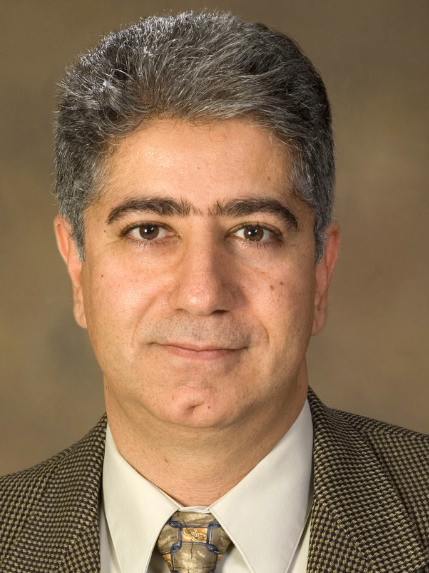
Marwan Krunz (IEEE Fellow)
Kenneth VonBehren Endowed Professor, The University of Arizona
Plenary Title: Machine Learning Techniques for Fast Protocol Adaptation in Wireless Networks
Time: 13:30-14:30, Wednesday, February 19, 2020
Abstract:
Classical techniques for protocol adaptation and interference mitigation in wireless networks often rely on static policies, designed based on a priori assumptions of the underlying dynamics (e.g., channel models, node distributions, etc.). These techniques are too idealized for realistic deployment scenarios, as they fail to capture the broad range of control parameters that impact network performance, especially in situations involving coexistence of heterogeneous technologies. Machine learning (ML) techniques, on the other hand, can capture a wide range of control parameters (features), with no or minimal assumptions about the underlying dynamics. However, such ML techniques emphasize performance over time complexity, rendering them unsuitable for real-time adaptation. In this talk, we will explore this performance/complexity tradeoff and present various ML techniques that are geared towards real-time protocol adaptation for specific wireless systems, including CSMA-based protocols at mid bands (e.g., Wi-Fi and LTE LAA) as well as multi-antenna/beamforming systems at high (millimeter-wave) bands. Hybrid adaptation techniques that combine model-free ML techniques (“black box”) with robust and highly generic modeling assumptions will also be discussed.
Biography:
Marwan Krunz is the Kenneth VonBehren Endowed Professor in the Department of Electrical & Computer Engineering, the University of Arizona. He holds a joint appointment in the CS Department. Since April 2013, he has been the site co-director of the Broadband Wireless Access and Applications Center, a multi-university industry-focused NSF center that includes 5 university sites and 16+ industry affiliates. He received his Ph.D. degree in electrical engineering from Michigan State University in 1995. He joined the University of Arizona in January 1997, after a brief postdoctoral stint at the University of Maryland. In 2010, he was a Visiting Chair of Excellence at the University of Carlos III de Madrid. He previously held other visiting research positions at INRIA-Sophia Antipolis, HP Labs, University of Paris VI, University of Paris V, University of Jordan, and US West Advanced Technologies. Dr. Krunz’s research interests lie in the areas of wireless communications and networking, with emphasis on resource management, adaptive protocols, and security issues. He has published more than 250 journal articles and peer-reviewed conference papers, and is a co-inventor on several US patents. M. Krunz is an IEEE Fellow, an Arizona Engineering Faculty Fellow (2011-2014), and an IEEE Communications Society Distinguished Lecturer (2013 and 2014). He was the recipient of the 2012 IEEE TCCC Outstanding Service Award. He received the NSF CAREER award in 1998.
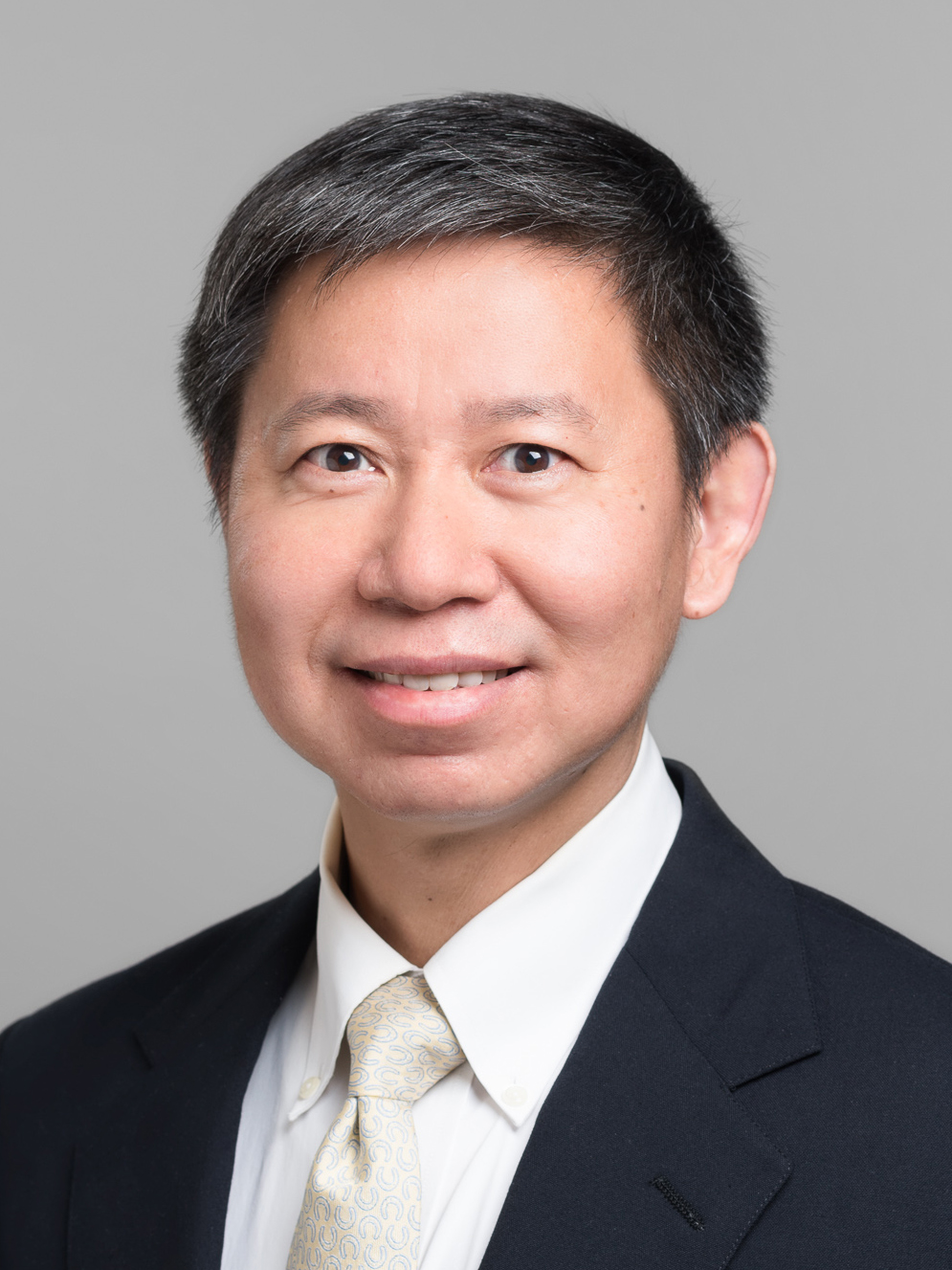
Baochun Li (IEEE Fellow)
Bell Canada Endowed Chair Professor, University of Toronto, Canada
Plenary Title: Federated Learning: Challenges and Opportunities
Time: 14:30-15:30, Wednesday, February 19, 2020
Abstract:
In the era of Internet of Things, edge computing, and Big Data, large volumes of data has been generated by millions of mobile devices and sensors at the edge of the Internet on a daily basis. Resolving the conflict between the need for analyzing such data and the requirements for preserving user privacy has always been a balancing act. Federated learning, as a new distributed computing paradigm involving both the edge and the cloud, has been touted in the recent years as a way to achieve a balanced tradeoff between utilizing data and preserving data privacy. It offers us the best of both worlds: privacy-preserving training of machine learning models. Yet, by performing local training and collecting model updates from edge devices, federated learning incurred a large amount of communication overhead, and has to address the problems of systems and statistical heterogeneity. In this talk, we explore the current challenges and opportunities in federated learning, and then present our recent work related to statistical heterogeneity. Throughout the talk, we will present an outlook on opportunities for future research.
Biography:
Baochun Li received his B.Engr. degree from the Department of Computer Science and Technology, Tsinghua University, China, in 1995 and his M.S. and Ph.D. degrees from the Department of Computer Science, University of Illinois at Urbana-Champaign, Urbana, in 1997 and 2000. Since 2000, he has been with the Department of Electrical and Computer Engineering at the University of Toronto, where he is currently a Professor. He holds the Bell Canada Endowed Chair in Computer Engineering since August 2005. His research interests include cloud computing, distributed systems, datacenter networking, and wireless systems.
Dr. Li has co-authored more than 370 research papers, with a total of over 18000 citations, an H-index of 78 and an i10-index of 256, according to Google Scholar Citations. He was the recipient of the IEEE Communications Society Leonard G. Abraham Award in the Field of Communications Systems in 2000. In 2009, he was a recipient of the Multimedia Communications Best Paper Award from the IEEE Communications Society, and a recipient of the University of Toronto McLean Award. He is a member of ACM and a Fellow of IEEE.
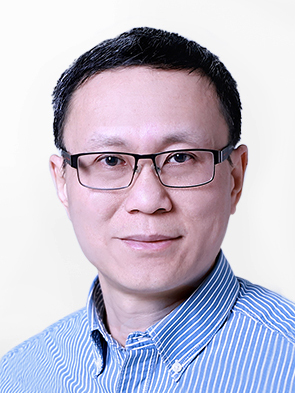
Jian Pei (ACM/IEEE Fellow)
Canada Research Chair Professor, Simon Fraser University, Canada
Plenary Title: Practicing the Art of Data Science
Time: 14:30-15:30, Tuesday, February 18, 2020
Abstract:
Data science embraces interdisciplinary methodologies and tools, such as those in statistics, artificial intelligence/machine learning, data management, algorithms, and computation. The art of practicing data science to empower innovative applications, however, remains an art due to many factors beyond technology, such as sophistication of application scenarios, business demands, and the central role of human being in the loop. In this talk, through two stories I will share with the audience some experience and lessons I learned from my practice of data science research and development. In the first story, I will illustrate the core value of using local patterns to build domain-oriented, end-to-end data science solutions that can help people gain new interpretable domain knowledge. In the second story, using network embedding as an example, I will demonstrate that the nature of data science practice is to connect challenges in vertical applications with general scientific principles and tools.
Biography:
Jian Pei’s professional interest is to facilitate efficient, fair, and sustainable usage of data for social, commercial and ecological good. Through inventing, implementing and deploying a series of data mining principles and methods, he produced visible values to academia and industry. His algorithms have been adopted by industry, open source toolkits and textbooks. His publications have been cited over 91,000 times. He is also an active and productive volunteer for professional community services, such as chairing ACM SIGKDD, running many premier academic conferences in his areas, and being editor-in-chief or associate editor for the flagship journals in his fields. His academic accomplishments have been acknowledged by the Royal Society of Canada (Canadian National Academy) Fellowship, ACM Fellowship, IEEE Fellowship, ACM SIGKDD Innovation Award, ACM SIGKDD Service Award, influential paper awards, best paper awards, and several other prestigious awards. He is a full professor at Simon Fraser University and also is consulting for Fortune Global 500 companies and coaching unicorn startups. He held executive positions at two Fortune Global 500 companies in his recent no-pay leave from academia.